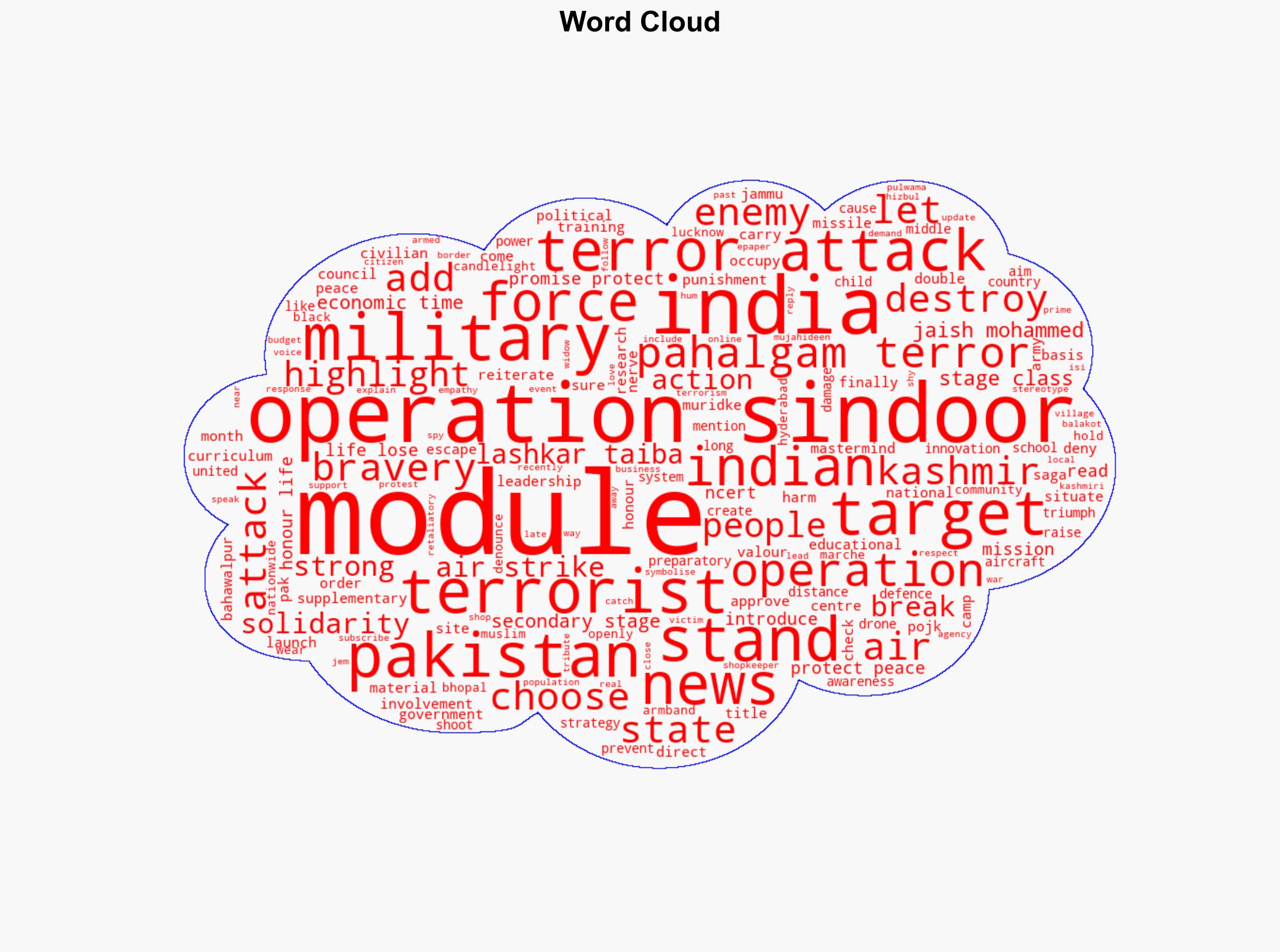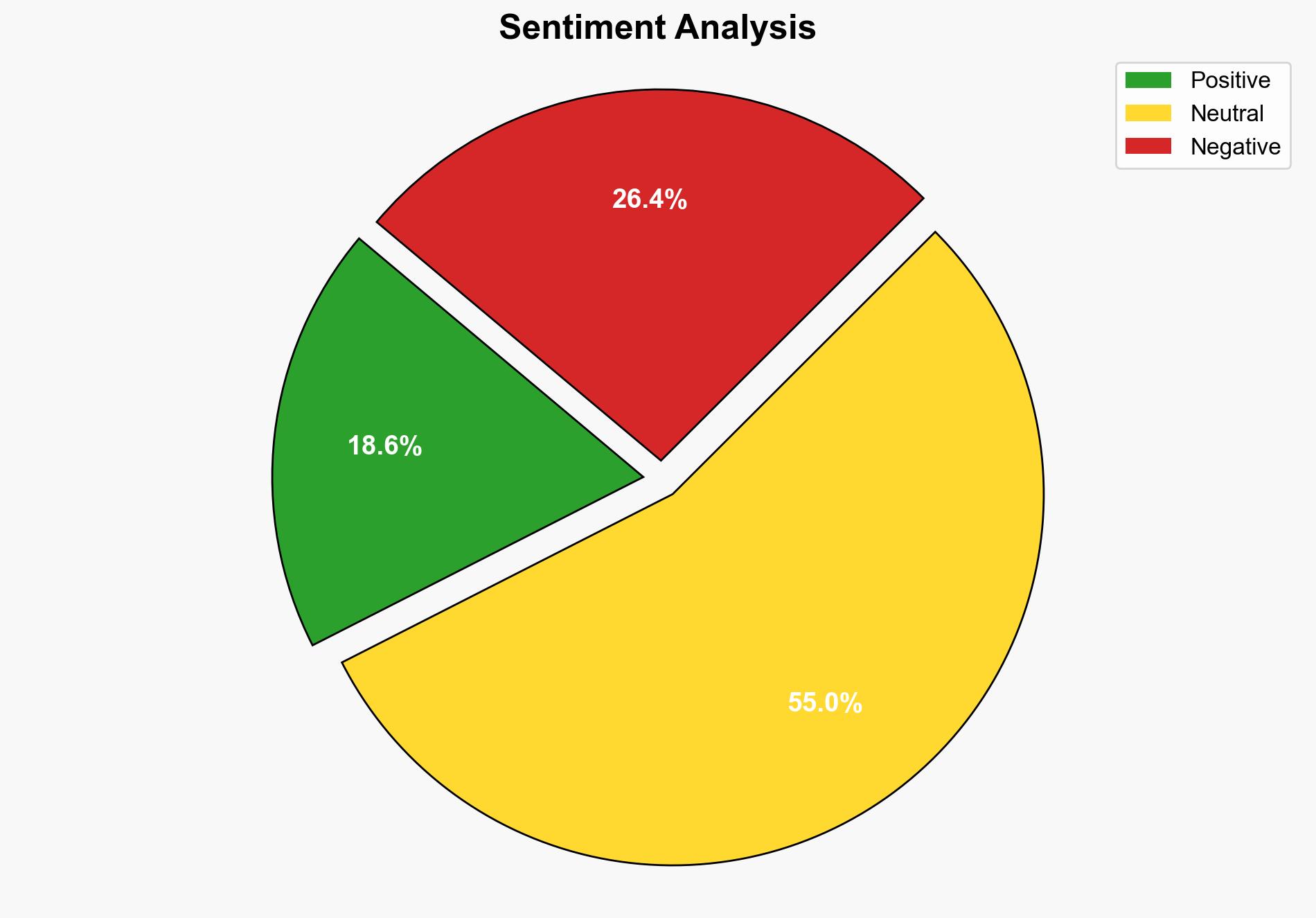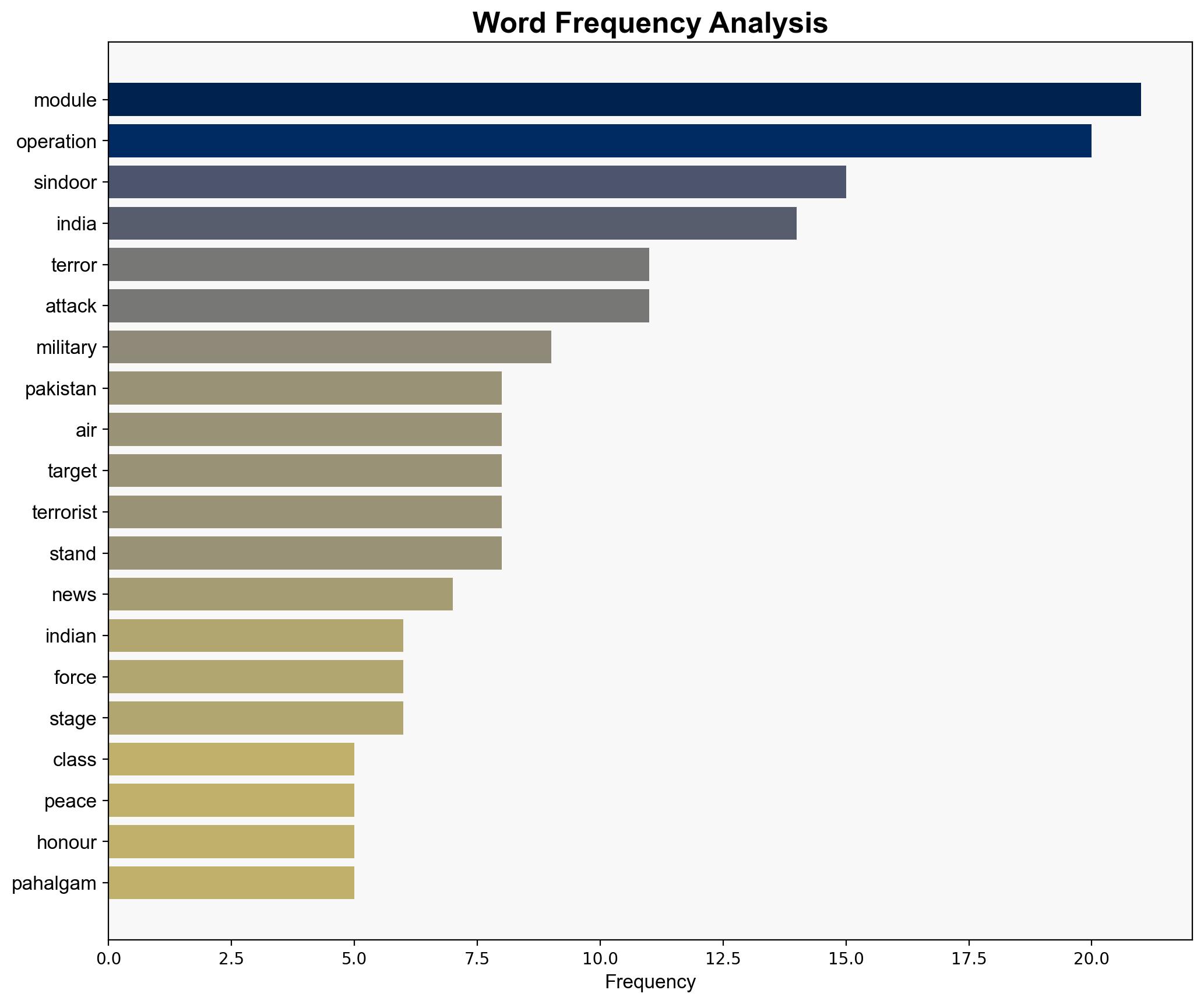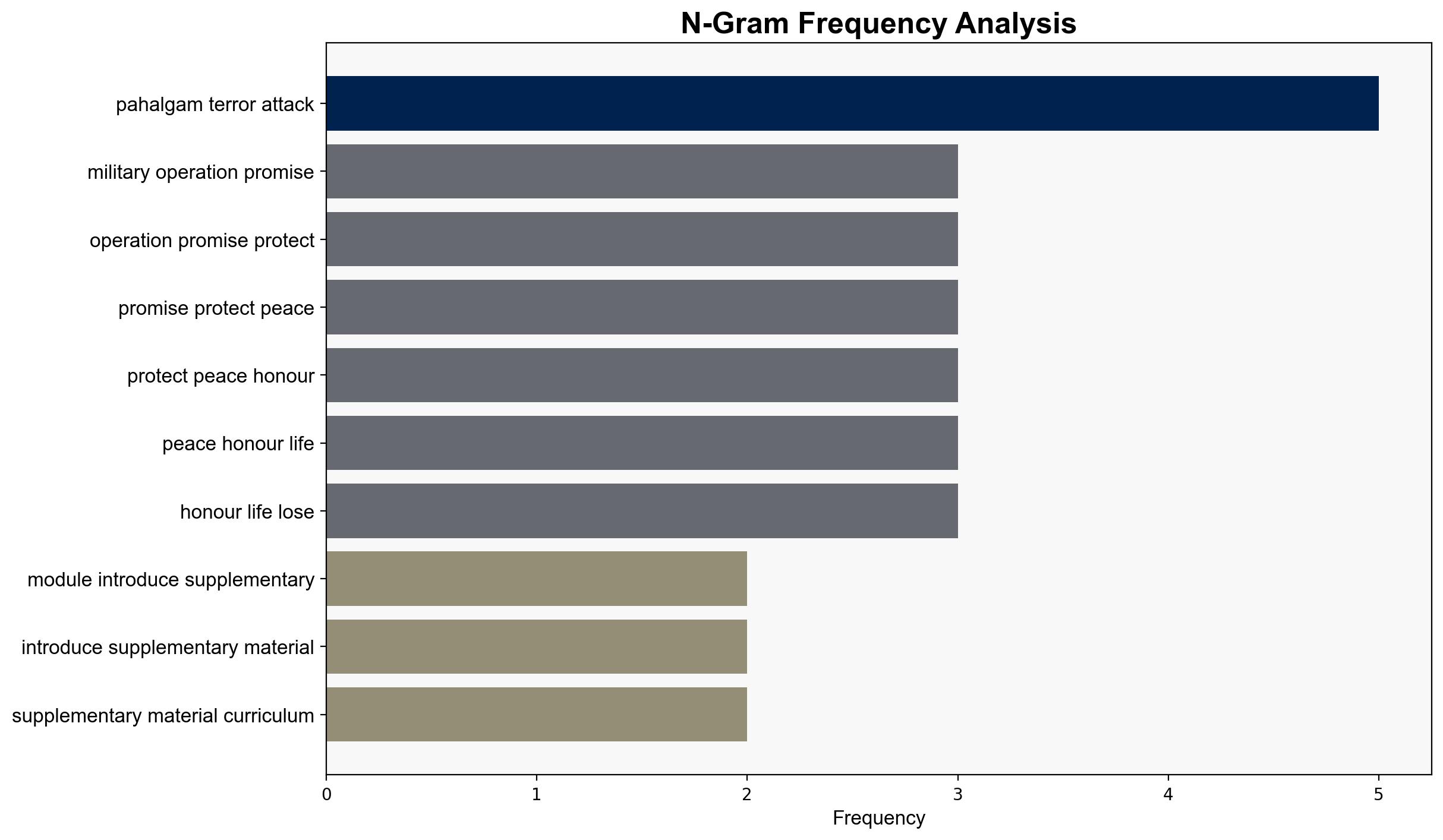NCERT introduces special modules on Operation Sindoor for classes 3 to 12 – The Times of India
Published on: 2025-08-19
Intelligence Report: NCERT introduces special modules on Operation Sindoor for classes 3 to 12 – The Times of India
1. BLUF (Bottom Line Up Front)
The introduction of NCERT modules on Operation Sindoor aims to bolster nationalistic sentiment and awareness of military operations among students. The most supported hypothesis suggests this is a strategic move to unify public opinion against perceived external threats, particularly from Pakistan. Confidence level: Moderate. Recommended action: Monitor public and diplomatic reactions, particularly in Pakistan, and assess the impact on regional stability.
2. Competing Hypotheses
1. **Hypothesis A**: The modules are primarily educational, designed to inform students about national defense and foster a sense of patriotism.
– **Supporting Evidence**: The curriculum includes historical context and emphasizes military strategy and innovation.
– **SAT Applied**: ACH 2.0 indicates a strong alignment with educational objectives.
2. **Hypothesis B**: The modules serve as a strategic tool to reinforce anti-Pakistan sentiment and justify military actions.
– **Supporting Evidence**: The content highlights Pakistan’s alleged involvement in terrorism and India’s retaliatory actions.
– **SAT Applied**: Cross-Impact Simulation shows potential for increased nationalistic fervor and diplomatic tensions.
3. Key Assumptions and Red Flags
– **Assumptions**: The modules are assumed to be factual and unbiased. They presume student engagement will translate into broader public support for military policies.
– **Red Flags**: Potential bias in presenting Pakistan’s role, lack of alternative perspectives, and the absence of civilian casualty data in military operations.
– **Blind Spots**: The impact of these modules on minority communities and international perceptions is not addressed.
4. Implications and Strategic Risks
– **Implications**: The modules could strengthen national unity but risk escalating tensions with Pakistan. They may also influence future generations’ perceptions of regional conflicts.
– **Strategic Risks**: Heightened nationalism could lead to increased military spending and potential conflict escalation. Diplomatic relations with Pakistan may deteriorate, affecting regional stability.
5. Recommendations and Outlook
- Monitor educational outcomes and public sentiment to gauge the modules’ impact.
- Engage in diplomatic dialogue with Pakistan to mitigate potential tensions.
- Scenario Projections:
- Best: Modules foster informed citizenship without escalating regional tensions.
- Worst: Increased nationalism leads to military escalation and diplomatic fallout.
- Most Likely: Modules enhance national unity with moderate diplomatic strain.
6. Key Individuals and Entities
– **NCERT**: Responsible for curriculum development.
– **Indian Government**: Endorses the modules and their strategic messaging.
– **Pakistan Government**: Implicated in the narrative, potentially affecting diplomatic relations.
7. Thematic Tags
national security threats, counter-terrorism, regional focus, educational strategy




